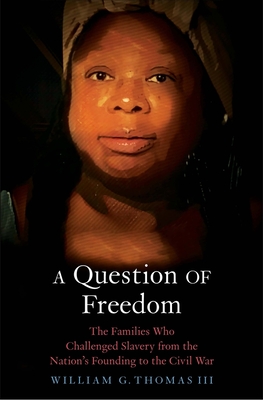Expedite your nonfiction book discovery process with Readara interviews, summaries and recommendations, Broaden your knowledge and gain insights from leading experts and scholars
In-depth, hour-long interviews with notable nonfiction authors, Gain new perspectives and ideas from the writer’s expertise and research, Valuable resource for readers and researchers
Optimize your book discovery process, Four-to eight-page summaries prepared by subject matter experts, Quickly review the book’s central messages and range of content
Books are handpicked covering a wide range of important categories and topics, Selected authors are subject experts, field professionals, or distinguished academics
Our editorial team includes books offering insights, unique views and researched-narratives in categories, Trade shows and book fairs, Book signings and in person author talks,Webinars and online events
Connect with editors and designers,Discover PR & marketing services providers, Source printers and related service providers

A Question of Freedom: The Families Who Challenged Slavery from the Nation's Founding to the Civil War
History > United States - 19th Century
- Yale University Press
- Hardcover
- 9780300234121
- 9.4 X 6.2 X 1.3 inches
- 1.74 pounds
- History > United States - 19th Century
- (Single Author) Asian American
- English
Readara.com
Book Description
A rich, roiling history that Thomas recounts with eloquence and skill. . . . The very existence of freedom suits assumed that slavery could only be circumscribed and local; what Thomas shows in his illuminating book is how this view was eventually turned upside down in decisions like Dred Scott. 'Freedom was local, ' Thomas writes. 'Slavery was national.'--Jennifer Szalai, New York Times
Gripping. . . . Profound and prodigiously researched.--Alison L. LaCroix, Washington Post
For over seventy years and five generations, the enslaved families of Prince George's County, Maryland, filed hundreds of suits for their freedom against a powerful circle of slaveholders, taking their cause all the way to the Supreme Court. Between 1787 and 1861, these lawsuits challenged the legitimacy of slavery in American law and put slavery on trial in the nation's capital.
Piecing together evidence once dismissed in court and buried in the archives, William Thomas tells an intricate and intensely human story of the enslaved families (the Butlers, Queens, Mahoneys, and others), their lawyers (among them a young Francis Scott Key), and the slaveholders who fought to defend slavery, beginning with the Jesuit priests who held some of the largest plantations in the nation and founded a college at Georgetown. A Question of Freedom asks us to reckon with the moral problem of slavery and its legacies in the present day.
Author Bio
William G. Thomas III is the Angle Chair in the Humanities and Professor of History at the University of Nebraska. He served as Chair of the Department of History from 2010 to 2016. He has been a Guggenheim Fellow and a Lincoln Prize Finalist.
He is the author of A Question of Freedom: The Families Who Challenged Slavery from the Nation’s Founding to the Civil War (November 2020, Yale University Press), about enslaved families in Maryland who sued for their freedom in the decades after the American Revolution. A Question of Freedom received the 2021 Mark Lynton History Prize.
With partners Michael Burton and Kwakiutl Dreher, he is co-producing a series of live action animated documentary films. The first of these films, Anna, was released in 2018 and won Best Animation at the New Media Film Festival in Los Angeles. The second, The Bell Affair, is in production with funding from the National Endowment for the Humanities.
He served as the co-founder and Director of the Virginia Center for Digital History at the University of Virginia, where he was an Assistant and Associate Professor of History in the Corcoran Department of History. He was a co-editor the award-winning digital project, Valley of the Shadow: Two Communities in the American Civil War. With Edward L. Ayers, he co-authored “The Differences Slavery Made: A Close Analysis of Two American Communities,” one of the first pieces of digital scholarship published in the American Historical Review.
A dedicated teacher and mentor, Thomas was Chair of the Department of History and guided the department to the University-wide Departmental Teaching Award in 2017. He received the Hazel R. McClymont Distinguished Teaching Fellow Award in 2012 from the College of Arts and Sciences at Nebraska, the highest award for teaching in the College. He was named a Mead Honored Faculty member in the College of Arts and Sciences at the University of Virginia in 2004-05 in recognition for his dedication to undergraduate teaching.
Thomas has published essays in Civil War History, The Journal of Historical Geography, The New York Times, The Washington Post, EDUCAUSE Review, and Inside Higher Education. He is a graduate of Trinity College (Connecticut) and received his M.A. and Ph.D. in History from the University of Virginia. He currently serves on the Board of Trustees of Trinity College and on the National Historical Publications and Records Commission of the National Archives and Records Administration.
Research Interests
Digital Humanities, Digital History, Nineteenth-century U.S. History, Civil War, Slavery, Legal History
Education
Ph.D., University of Virginia, 1995
M.A., University of Virginia, 1991
B.A., Trinity College, 1986 (with honors in history)
Source: University of Nebraska - Lincoln
Videos






Community reviews
No Community reviews

